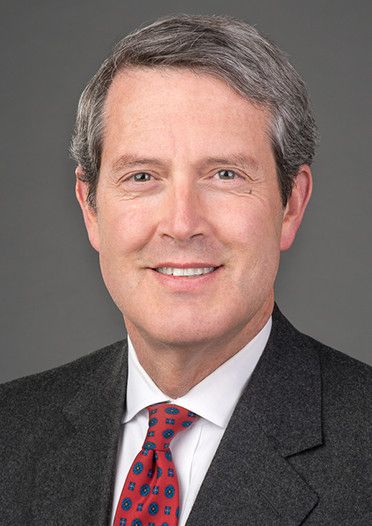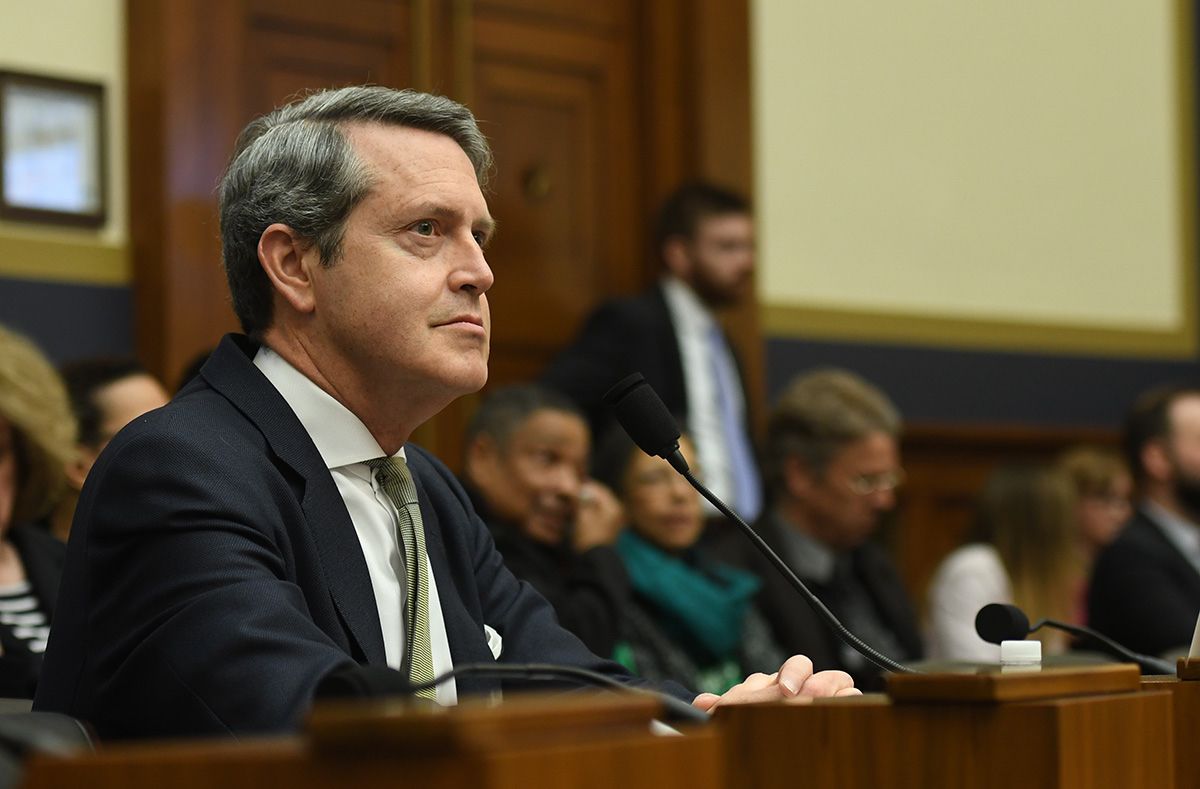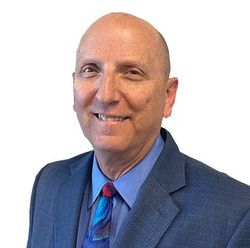As economic unsettledness begins to touch individuals and organizations throughout Utah and around the country, Silicon Slopes spoke recently with one of the state’s most cerebral and Wall Street-connected individuals for his insights and observations.
AUTHOR’S NOTE:
A native San Franciscan that was raised in Roy, Utah, Randal K. Quarles is arguably the Utahn with the greatest insights and most clout when it comes to the inner workings of the national and global financial marketplaces.
True inklings of such potential were first shown when Quarles graduated summa cum laude from Columbia University with a bachelor’s degree in economics and philosophy before going on to receive his law degree from Yale in 1984.
During his now nearly 40-year career, Quarles has practiced financial institutions law for nearly 15 years in New York City and London, while also leading and/or helping found two major financial institutions, including
- The Carlyle Group, where he served for over six years as a partner, and with
- Utah-based Cynosure Group, where he was a co-founder and served for nearly four years as managing partner, and is now its executive chairman.

Additionally, Quarles spent over 11 years working for the U.S. government, including
- Two stints with the U.S. Department of the Treasury, spanning more than six years, with over a year as Undersecretary for Domestic Finance, plus
- Close to a year as the U.S. Executive Director of the International Monetary Fund, and, most recently,
- Four years as one of two Vice Chairmen of the U.S. Federal Reserve and a member of its Board of Governors.
With Quarles’ background, we thought it would be beneficial to visit with him and share some of his thoughts with the Silicon Slopes ecosystem.
What follows below has been edited for clarity and length from our 45-minute conversation.
A Quick Primer on the U.S. Federal Reserve
David Politis
To get started what in the heck is the U.S. Federal Reserve? What is it, and where did it come from? And what's the role that the Fed plays today?
Randal Quarles
So that's a more complicated question maybe than it ought to be, because the Federal Reserve is a unique and complex organization.
At one level, it's an easy answer: It's the central bank of the United States. But it was created at a particular moment in history to respond to some of the imperatives of U.S. history that have been different than in other countries that make it, the Fed, different from most central banks. Specifically, it was created to basically help provide financial stability, particularly to the banking system.

There had been a series of financial crises of which the most dramatic had been the financial crisis of 1887 when JP Morgan had stepped in and saved the financial system by providing the necessary liquidity.
But one of the issues with the way the financial system was structured was that every bank had its own liquidity, and there was difficulty moving the liquidity from places where it might not be needed in the country to where it was needed.
So the idea behind the creation of the Federal Reserve, which is inherent in the name, was to create a centralized reserve to allow liquidity, provided in times of stress, to the parts of the country where it might be needed.
That role is now quite a bit different in the way that the Fed works today, in part because the legal environment has changed so much since World War II. Principally, the notion became more embedded so that the modern role of the Fed is to respond via monetary policy to the ups and downs of the economy to try to moderate the business cycle.
And in the 1970s, the Fed was given the explicit task of trying to maintain maximum employment while maintaining low and stable inflation.
Politis
Most people, if they think of the Fed at all on a day-to-day basis, say, “Oh, that's the organization that sets the interest rates that are paid by the federal government to those that borrow money from the U.S. government.” Is that correct?
Quarles
The Fed has used different tools over time to try to affect interest rates. And today the principal way that the Fed acts is to focus on the interest rate that the Fed pays banks for deposits that the banks keep at the Fed, which are called reserves.
The Fed sets an interest rate for those reserves and, essentially, that sets the short-term interest rate because you have no credit risk if you're lending to the Fed.
So you're not going to lend lower than that to anybody else. And therefore, interest rates for longer terms or for different sorts of credit rise from there.
But by setting that short term, risk-free interest rate through the interest on reserves, the Fed affects the overall cost of money in the economy.
Politis
Congress is the one that directs the Fed from a law standpoint. Is that basically correct? Or is it mostly independent? Because there are questions about if the Fed is independent or not.
And there have been some that have said it really should be directed by the whims of the executive branch. That would mean that the next president could say, “You know what? I hate the policy. We're changing it. You're gone, you're gone, you're gone.” And then new governors would come in. But today, that's not possible, correct?
Quarles
That's not how the Fed works today. And while there have been a series of cases that have been brought to try to rein in the so-called administrative state and affect the operation of the independent agencies that have grown up over time, you wouldn't be able to do that.
Currently, the Fed is governed by a board of seven people. And the current Supreme Court precedents are that agencies that are governed by a board are not dismissible at the pleasure of the president.
The Role of Unemployment on Inflation
Politis
Utah’s unemployment rate in April was 1.9%. (It rose to 2% in May, up from 1.9% in April.)
It's crazy how low that unemployment rate is. Is that a good thing or a bad thing?
Quarles
When I learned macroeconomics, we were given the figure of 5.5% as the non-accelerating inflation rate of unemployment (NAIRU), and below five-and-a-half percent you would get inflation. And the Fed tended to target inflation. Specifically, if unemployment got too low, they raised interest rates in order to cool the economy, in order to prevent inflation from taking off because of that perceived relationship.
When Janet Yellen was chair of the Fed, from 2014–2018, her special expertise was as a labor economist. And she led the Fed to allow unemployment to fall well below the expected NAIRU of 5.5%.
While she was leading the Fed through most of that, I was a critic from the outside. I said, look, “You're baking in inflation.” But the inflation didn't come, and the unemployment rate fell quite a bit.
When I got onto the Fed board, in 2017, we allowed the unemployment rate to fall even further. It fell to about 3.9%, a little higher than where it is currently. That was a 50-year low, and we weren't seeing inflation at the time.
So as I have categorically said, “She was right, and I was wrong.”
There are a lot of theories as to why that would be. And since we don't have four-and-a-half hours, I'm not going to go through what those theories might be.
The Fed has recently changed the way it approaches it. They've said we are not going to do what Feds in the past have done, which is to set an expected rate of unemployment.
We're going to let unemployment fall a little further until we actually begin to see inflation, and that will be time to act. But we're not going to cool the economy off too soon, because if we had done that during the time of Janet Yellen, there would have been hundreds of thousands of people who would not have had jobs during that period, who did have jobs. And that's a huge benefit.
Of Stress Tests and What Keeps Quarles Up at Night
Quarles
What really keeps me up at night is the potential for a financial crisis that comes from a cyberattack that is the area in the whole, complex ganglia of the financial and economic system globally.
The Fed runs something called stress tests every year on the banking system. At the beginning of COVID, we said, “Suppose there is no federal support for what's going on here, and we have shut the economy down right at the outset for we didn't know for how long.” And it passed with flying colors.
So the risk of another internally generated financial crisis is small, but the risk of a financial crisis arising from a cyberattack that closes down some of the large institutions in the country?
The Federal Reserve Bank of New York did a study recently that determined that the losses from a cyberattack would apply to 85% of the economy.
In other words, you would have 85% of the economy that would be damaged if only one of our large banks was shut down.
And if you had two or three shut down for only one business week, you'd have $1 trillion of damage in the economy. And while there is an enormous amount of work that's being done in the industry and in the government, it's not enough.
Politis
And were you, are you, concerned just about cyberattacks against the financial markets here in the U.S.? Are you also concerned about cyberattacks against other industries?
Case in point, utilities, because to me that's the other thing. If you have no electricity, nothing's going to work anyway.
Quarles
Oh, absolutely.
Obviously my particular area of expertise is the financial industry. But again, perhaps somewhat counterintuitively, this Federal Reserve Bank of New York study said that the effects of a shutdown of a cyberattack on the financial industry were actually as much as two-and-a-half times as great as that of any other industry.
Of Bitcoin, Ethereum, and Other Cryptocurrencies
Politis
Last question: How do you feel about what's happening with regards to digital currency–blockchain, cryptocurrency, the regulations around that? Do you see that as an unstoppable force that's moving forward? Or do you see that as something that's just a fad?
Quarles
One of the things that I did while I was vice chairman of the Fed, I was also chairman of something called the Financial Stability Board, which is the global body of all the central banks in the world and the financial regulators of the world that considers questions of financial stability around the the the planet in a integrated financial system.
We looked very closely at the developments in crypto, call it original crypto–Bitcoin, Ethereum, those sorts of cryptocurrencies–as well as the developments in stable coins, and then we were beginning to look at the implications of decentralized finance.
Our conclusion in looking at those first types of crypto assets was they were unlikely to become important enough in the global financial system to have systemic importance.
People would make and lose fortunes in the same way as they make and lose fortunes buying and selling gold. But gold is no longer important in the global monetary system and the U.S. monetary system. It is a speculative asset that people hold. People have compared Bitcoin and the price of Bitcoin to tulip mania.
And there I say, “Yeah, well, we still have tulips, right?”
I mean, tulips are actually a big industry. And if you fly into the airport in Amsterdam, you look down and there are all those, acres and acres of tulips.
So I think there's a role for those first generation of crypto assets, if you will, that will probably be permanent, but they are not ultimately systemically significant.
FINAL AUTHOR'S NOTE: To watch the full interview of Randal Quarles, please click here to watch this episode of “Conversations” on SiliconSlopes.tv. Conversely, you can also listen to this interview on your favorite podcast provider at “Silicon Slopes Conversations;” case in point, via this link on Apple podcasts or via most popular podcast platforms.
Thank you.




